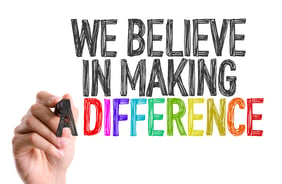“Public health leaders must start by listening to the communities they wish to serve and let community members lead” [1]
Diabetes: Community-Based Participatory Research and its Impact on Diabetes Prevention
What is a community?
The “community” is valuable in developing, implementing, and evaluating public health education programs.
Although it could be described differently: “a group of people with diverse characteristics who are linked by social ties, share common perspectives, and engage in joint action in geographical locations or settings.”[1]
Why build relationships within a community?
The target population within the community is a critical stakeholder that can address various public health issues and disparities through a collaborative approach.
Building relationships with the community using the community-based participatory (CBPR) method combines knowledge and action necessary to create positive and lasting social change and has become a common research approach in the public health field [3]

What is CBPR?
CBPR (community-based participatory research) is a research approach involving a collective, reflective, and systematic inquiry in which researchers and community stakeholders participate as equal partners in all stages of the research process to educate, improve practice, or effect social change.
When an issue has been identified, many stakeholders are deemed valuable in a successful outcome (Figure 1).
.png?width=301&height=301&name=Add%20a%20little%20bit%20of%20body%20text%20(1).png)
For example, diabetes mellitus is a public health issue that affects specific populations more than others, and those populations are less likely to have access to resources to prevent type 2 diabetes or proper knowledge to protect themselves, so it is vital to collaborate with other stakeholders in adopting a lifestyle change intervention for modifiable factors (i.e., healthy foods, physical activity, etc.).
Collaborate with who?
Collaboration would come from patients, healthcare providers, health insurance companies, and on a national and international level, the Centers for Disease (CDC) and World Health Organization (WHO). When partnered with stakeholders, the strength is in numbers.
The community can achieve community-level interventions through proper needs assessments, planning, design, implementation, evaluation, and dissemination of concepts. Each member is viewed as an equal partner in reducing the disease.
“It is also particularly important, as we change our focus to addressing social determinants of health, that we do not make the mistake of leaving the community's voice out of this process” [1]
Community Efforts?
One association that has considered the community benefit is the Association for State and Territorial Health Officials (ASTHO). Its challenge for the next two years focuses, in part, on engaging health officials to mobilize community-led, place-based initiatives.
Another effort is by Rhode Island's Health Equity Zones (HEZs), which are community-led collaboratives that bring together community members and local organizations from diverse fields to pursue shared goals [1]
Then there's The Athens Land Trust (ALT), which is a nonprofit organization in Athens, Georgia, dedicated to using community land for community interests and key activities to increase community food production and access to healthy foods, which is a significant factor in diabetes prevention and glycemic control.


What impact does CBPR have on the control and prevention of diabetes, and how has the approach been successful?
Diabetes is a chronic but manageable disease that has become a public health issue and a global concern that has impacted many lives.
From 2001 to 2020, diabetes prevalence significantly increased among US adults 18 or older. According to the CDC (2022), the total estimated cost of diagnosed diabetes in 2017 was $327 billion, including $237 billion in direct medical costs and $90 billion in lost productivity.
- 37.3 million people have diabetes—that’s 11.3% of the US population.
- 28.7 million people have been diagnosed with diabetes.
- 8.5 million people with diabetes have not been diagnosed and do not know they have it.
Choosing a healthy plant-based and vegan diet is most beneficial when it comes to:
-
Higher levels of energy;
-
Improved sleep;

-
Aids in energy and overall happiness;
-
Provides a sense of comfort and relief;
-
Could prevent major diseases such as obesity and diabetes;
-
Accomplish weight-loss and management; and
-
Improves mental and cognitive functioning.
There are really no excuses not to try healthier habits in your everyday life. If you are a man or woman looking for specific benefits of adopting healthier habits or just want to know about the general healing properties of herbs. Please remember to comment or post any health questions, or contact us directly!

















-1.png)